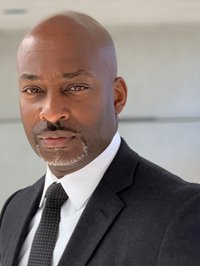PRESENTERS
 Nina Chernoff is a Professor at the CUNY School of Law. Professor Chernoff’s research focuses on the jury, primarily the right to a jury selected from a fair cross-section of the community.
Nina Chernoff is a Professor at the CUNY School of Law. Professor Chernoff’s research focuses on the jury, primarily the right to a jury selected from a fair cross-section of the community.
- Her article, No Records, No Right: Discovery and the Fair Cross-Section Guarantee, was cited by the Iowa Supreme Court’s decision in State v. Plain in support of a Constitutional right to discovery of jury selection records, and was also featured on Last Week Tonight with John Oliver.
- Her article Wrong About the Right: How Courts Undermine the Fair Cross-Section Guarantee by Confusing it With Equal Protection was featured by the Getting Scholarship Into Courts Project of the National Association of Criminal Defense Lawyers (May 2015).
Her article Black to the Future: The State Action Doctrine & The White Jury is a tribute to the scholarship of Charles Black and a critique of courts’ use of state action doctrine to analyze fair cross-section cases.
Professor Chernoff also works with courts committed to assembling diverse jury pools. For example, she gave the keynote presentation at the Washington State Supreme Court’s symposium on Jury Diversity in Washington: A Hollow Promise or Hopeful Future?, and is currently a consultant to the New Jersey Judiciary. Professor Chernoff also works with attorneys and communities seeking to diversify their jury pools through advocacy or litigation. For example, she recently helped draft a letter recommending improvements to the jury plan of the United States District Court for the Southern District of California.
Prior to joining CUNY’s faculty, Professor Chernoff was an Acting Assistant Professor of Lawyering at New York University Law School. Before entering academia, she was a staff attorney in the Special Litigation Division of the Public Defender Service for the District of Columbia (PDS). In that capacity she litigated systemic criminal justice issues, including prosecutorial misconduct, jury representation, and the reliability of forensic evidence. Prior to PDS, she was a staff attorney and Zubrow Fellow at Juvenile Law Center and served as a law clerk for the Honorable Thomas L. Ambro, U.S. Court of Appeals for the Third Circuit. Professor Chernoff graduated from Georgetown University Law Center, magna cum laude, in 2003; she received her M.S. with distinction in Justice, Law & Society from the School of Public Affairs at American University in 2000, and her B.A. in Sociology from Bryn Mawr College in 1997.
 Stephen B. Bright has been practicing law since 1975, representing people in capital cases since 1979, and teaching at Yale and other law schools since 1993. He has tried death penalty cases before juries in Alabama, Georgia and Mississippi, and argued capital cases before state and federal appellate courts, including four arguments before the United States Supreme Court. The Supreme Court ruled in favor of his client in each case; three involved racial discrimination in jury selection and the fourth involved funds for a mental health expert for a poor person facing the death penalty. He was director and president of the Southern Center for Human Rights, where he spent 34 years. He now teaches at the law schools at Yale and Georgetown Universities. He received the American Bar Association’s Thurgood Marshall Award in 1998. The Daily Report, Georgia’s legal newspaper, named him “Newsmaker of the Year” in 2003 for his contribution to bringing about creation of a public defender system in Georgia that year. His curriculum vitae and publications are available here.
Stephen B. Bright has been practicing law since 1975, representing people in capital cases since 1979, and teaching at Yale and other law schools since 1993. He has tried death penalty cases before juries in Alabama, Georgia and Mississippi, and argued capital cases before state and federal appellate courts, including four arguments before the United States Supreme Court. The Supreme Court ruled in favor of his client in each case; three involved racial discrimination in jury selection and the fourth involved funds for a mental health expert for a poor person facing the death penalty. He was director and president of the Southern Center for Human Rights, where he spent 34 years. He now teaches at the law schools at Yale and Georgetown Universities. He received the American Bar Association’s Thurgood Marshall Award in 1998. The Daily Report, Georgia’s legal newspaper, named him “Newsmaker of the Year” in 2003 for his contribution to bringing about creation of a public defender system in Georgia that year. His curriculum vitae and publications are available here.
 Brendon Woods, appointed in December 2012, is the first Black Chief Public Defender in Alameda County’s history. Woods has 20 years of experience in criminal defense litigation and leads 170 staff in providing superior legal defense in more than 3,000 new files monthly. Woods is committed to providing holistic representation to his clients and is a nationally recognized leader in public defense. He is a Board Member and former President of the California Public Defenders Association and was honored with the Harvard Law School Wasserstein Public Interest Fellowship for outstanding public service. From a young age, Brendon Woods had formative experiences with law enforcement –steering his life and career toward public defense. He feels fortunate to fight for those battling systems of oppression and strives to reshape the discourse and nature of public defense and criminal justice as a whole.
Brendon Woods, appointed in December 2012, is the first Black Chief Public Defender in Alameda County’s history. Woods has 20 years of experience in criminal defense litigation and leads 170 staff in providing superior legal defense in more than 3,000 new files monthly. Woods is committed to providing holistic representation to his clients and is a nationally recognized leader in public defense. He is a Board Member and former President of the California Public Defenders Association and was honored with the Harvard Law School Wasserstein Public Interest Fellowship for outstanding public service. From a young age, Brendon Woods had formative experiences with law enforcement –steering his life and career toward public defense. He feels fortunate to fight for those battling systems of oppression and strives to reshape the discourse and nature of public defense and criminal justice as a whole.
 Sonia Gipson Rankin teaches in the fields of Torts, Family Law, Technology and Law, and Race and Law. Professor Gipson Rankin’s scholarship and activism combine her computer science background with her passion for racial justice. Her work focuses on two areas: 1. Race, technology, and law; and 2. Black family and community empowerment. Her 2021 article, “Technological Tethereds: Potential Impact of Untrustworthy Artificial Intelligence in Criminal Justice Risk Assessment Instruments”, was published in the Washington and Lee Law Review and explores the impact of cyberattacks and the unintended consequences of unmonitored AI on criminal justice risk assessment instruments. Professor Gipson Rankin is a member of the Interdisciplinary Working Group on Algorithmic Justice—a collaboration of computer scientists, legal scholars, and social scientists from New Mexico who provide insight to attorneys and government officials on issues related to artificial intelligence. She regularly presents on topics such as AI, kinship care, criminal justice reform, implicit bias, inclusive leadership, and Black community empowerment. Regarding these issues, Professor Gipson Rankin has been quoted in numerous media outlets, including BBC World News and National Public Radio.
Sonia Gipson Rankin teaches in the fields of Torts, Family Law, Technology and Law, and Race and Law. Professor Gipson Rankin’s scholarship and activism combine her computer science background with her passion for racial justice. Her work focuses on two areas: 1. Race, technology, and law; and 2. Black family and community empowerment. Her 2021 article, “Technological Tethereds: Potential Impact of Untrustworthy Artificial Intelligence in Criminal Justice Risk Assessment Instruments”, was published in the Washington and Lee Law Review and explores the impact of cyberattacks and the unintended consequences of unmonitored AI on criminal justice risk assessment instruments. Professor Gipson Rankin is a member of the Interdisciplinary Working Group on Algorithmic Justice—a collaboration of computer scientists, legal scholars, and social scientists from New Mexico who provide insight to attorneys and government officials on issues related to artificial intelligence. She regularly presents on topics such as AI, kinship care, criminal justice reform, implicit bias, inclusive leadership, and Black community empowerment. Regarding these issues, Professor Gipson Rankin has been quoted in numerous media outlets, including BBC World News and National Public Radio.
Before joining the University of New Mexico School of Law faculty, Professor Gipson Rankin served as the Associate Dean for Curriculum and Program Development in University College and as a Senior Lecturer in Africana Studies, both at UNM. In 2016, Professor Gipson Rankin was named one of 10 Outstanding First-Year Advocates by the National Resource Center for her work related to first-year college students. In 2018, she was honored as a Woman of Influence Award by the Albuquerque Business Journal. She is former President of the New Mexico Black Lawyers Association and a member of the NM Supreme Court Commission on Equity and Justice. Her mission is to inspire students, communities, and systems to seek justice with a spirit of excellence.












